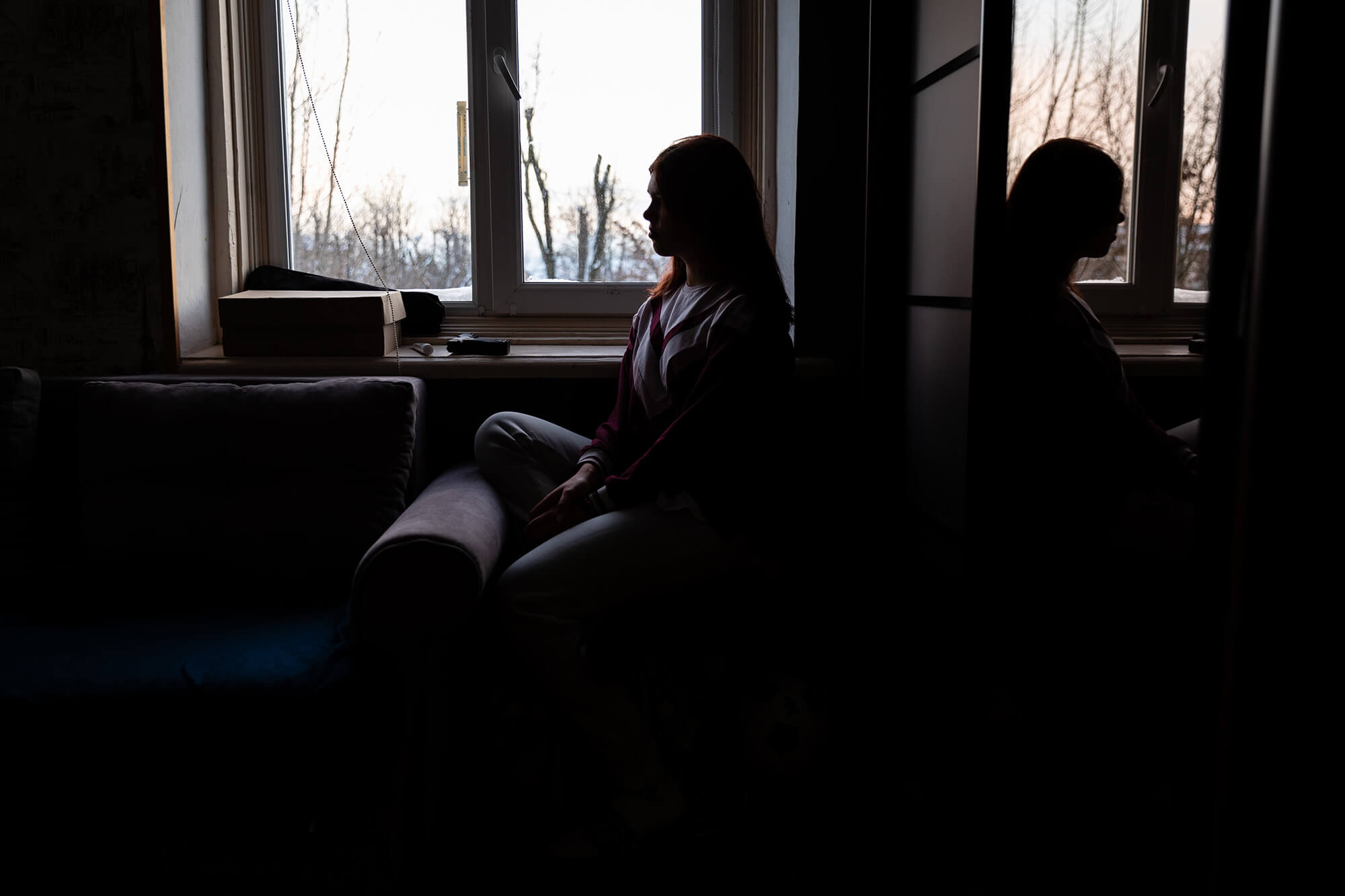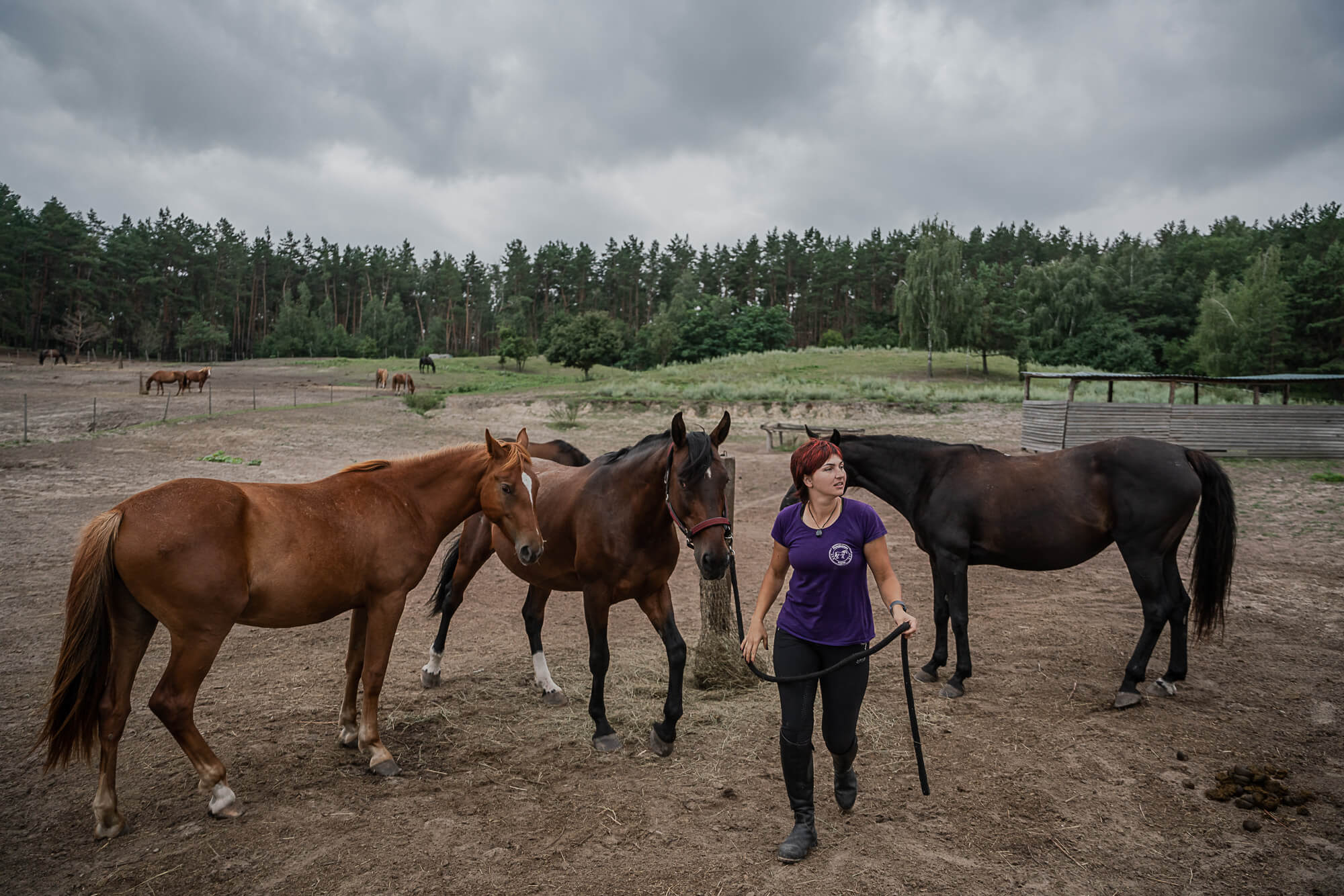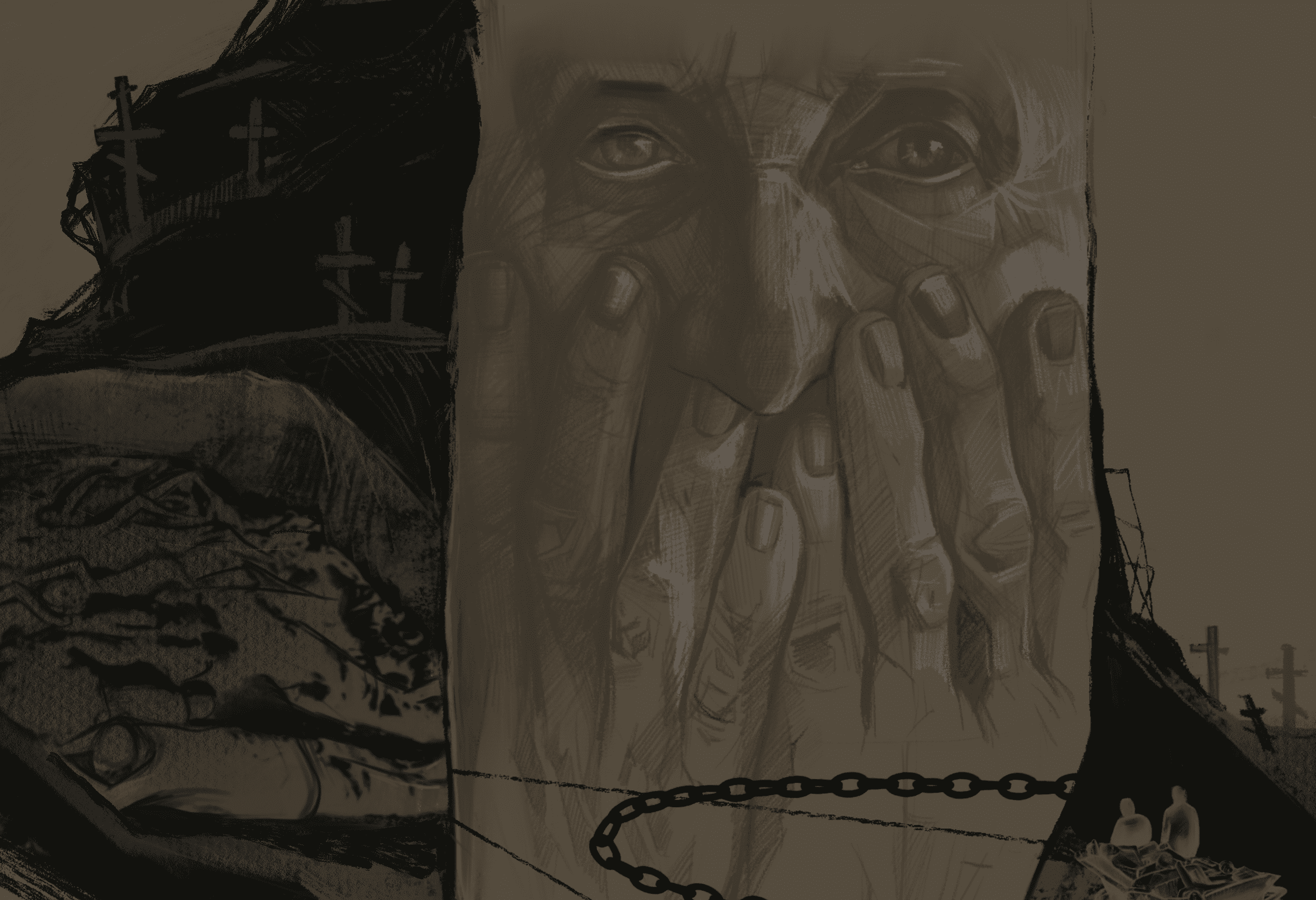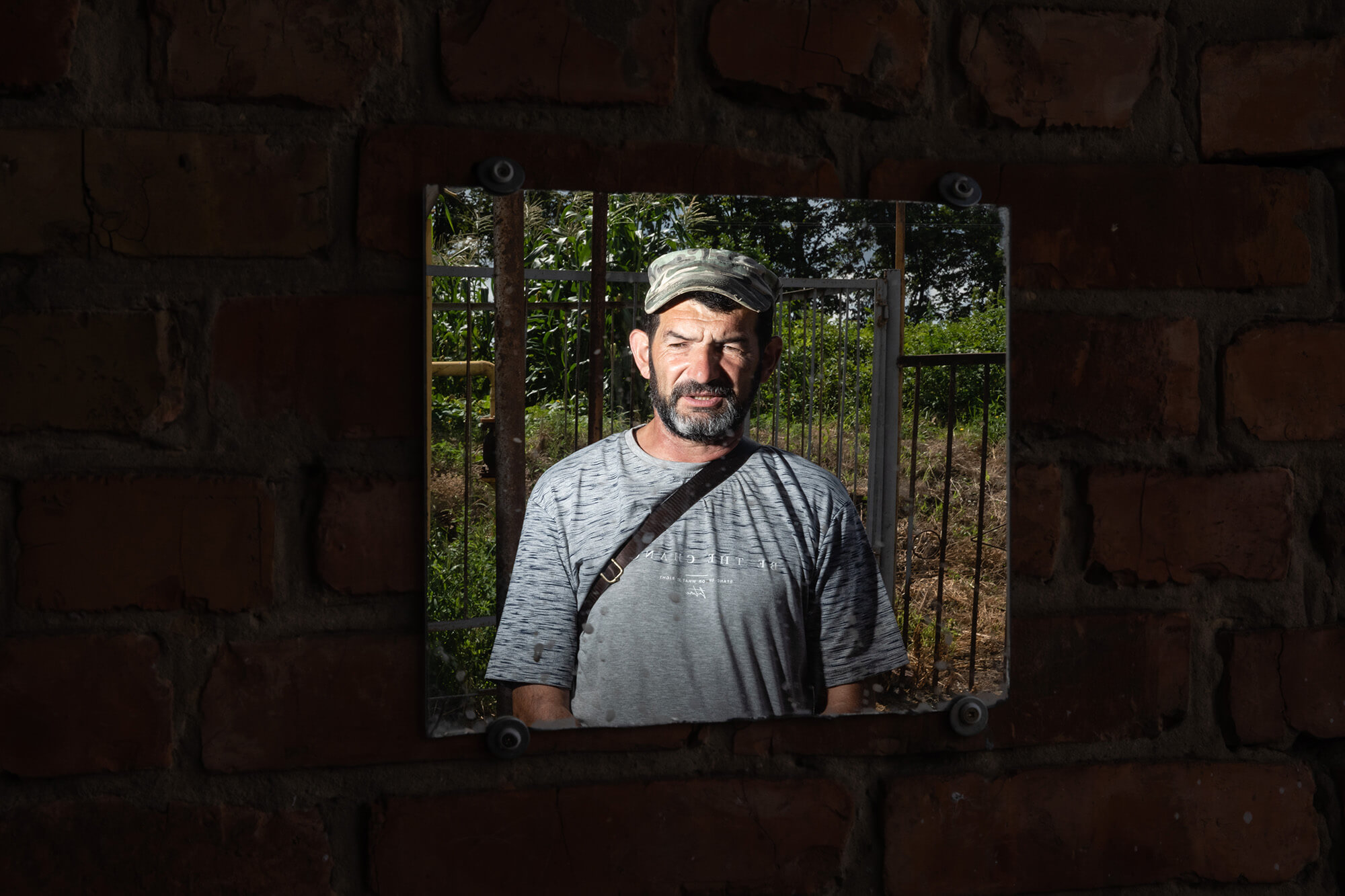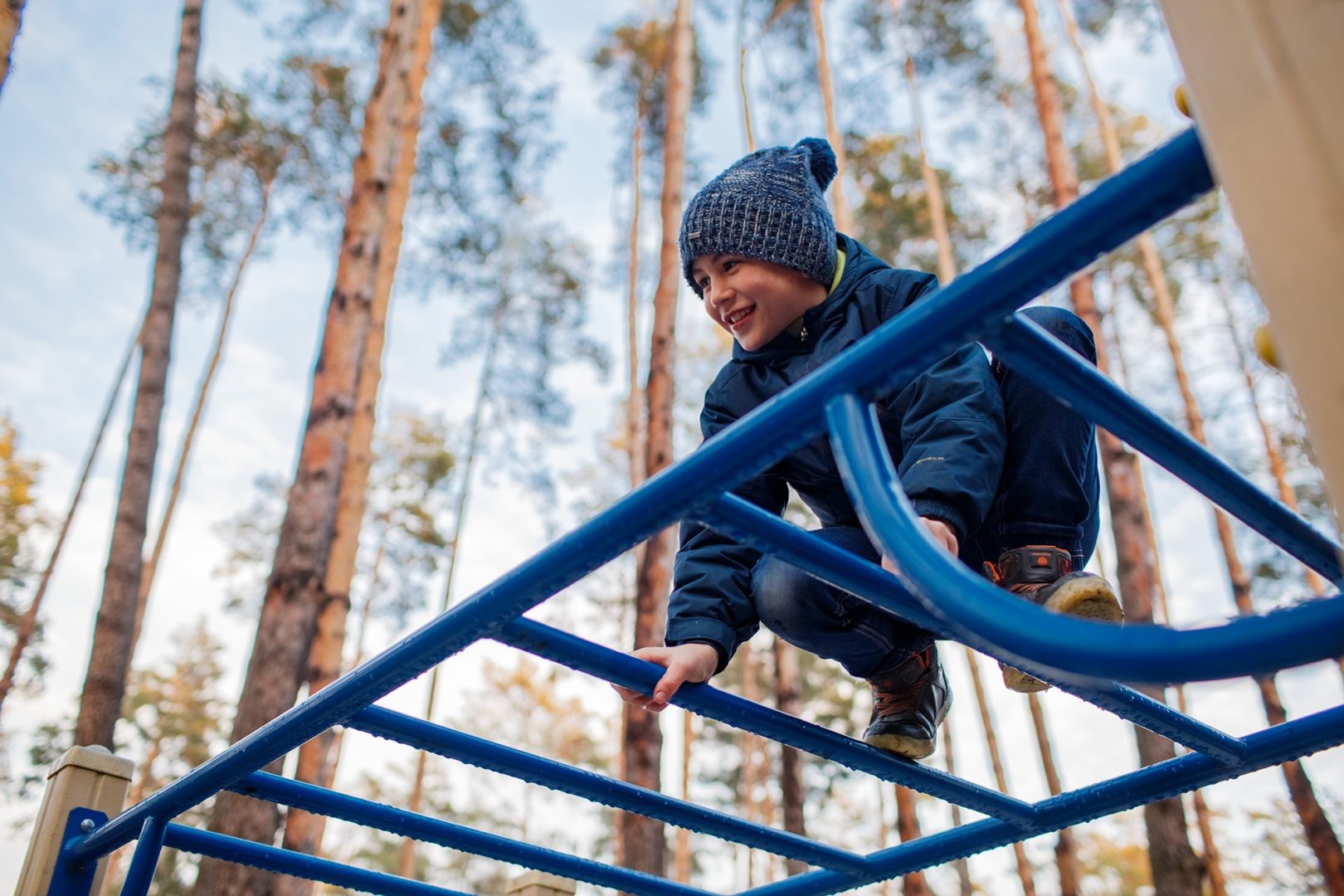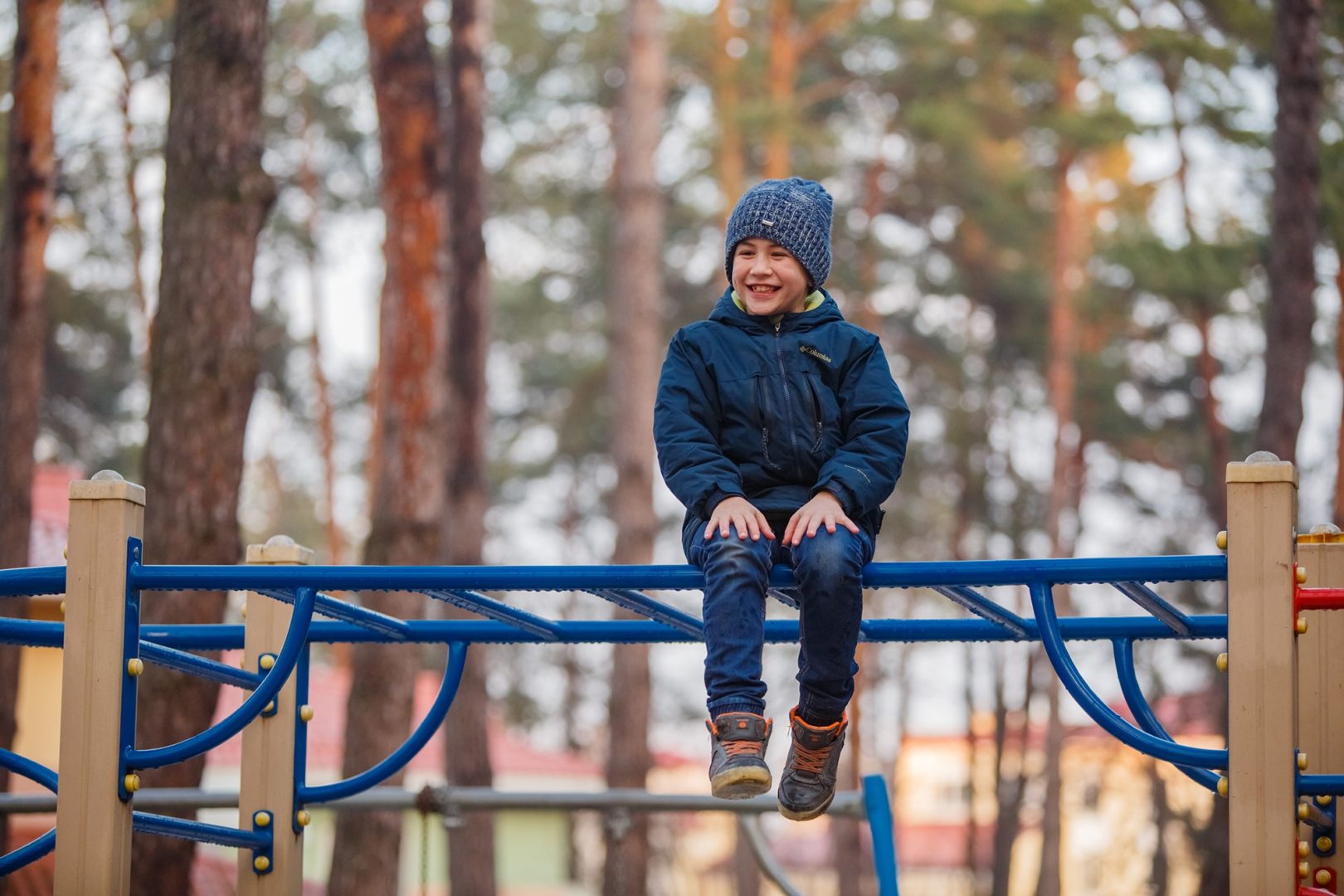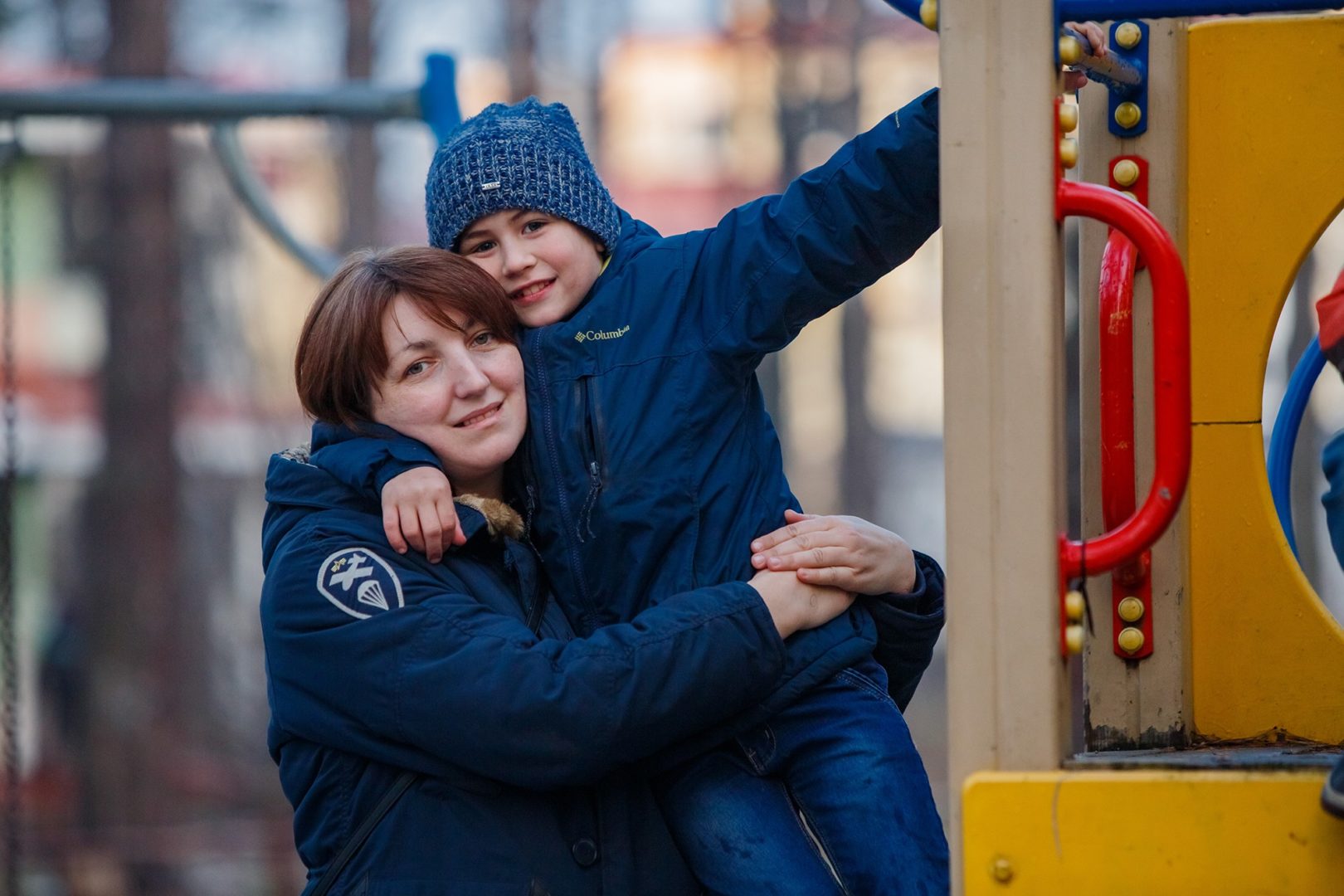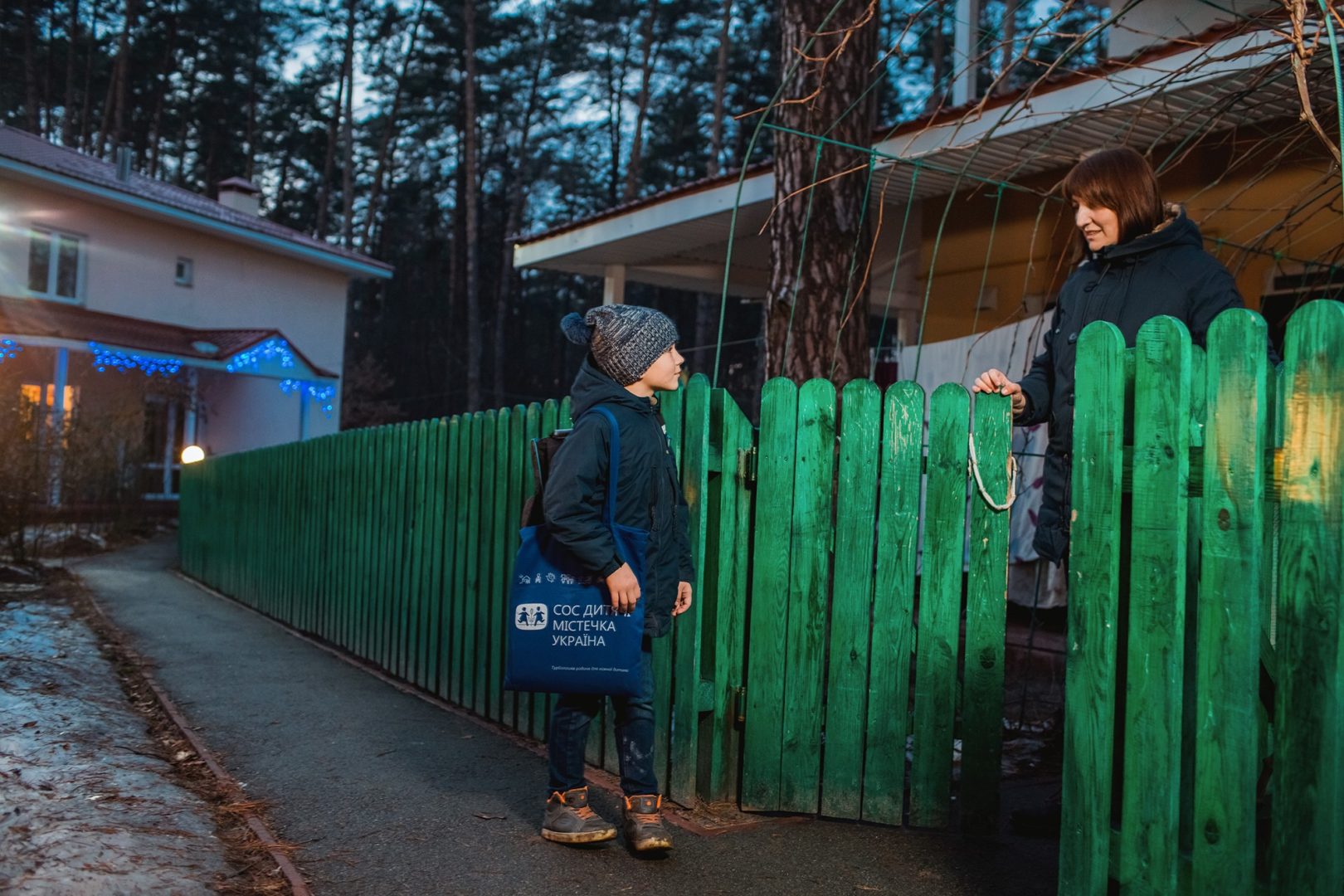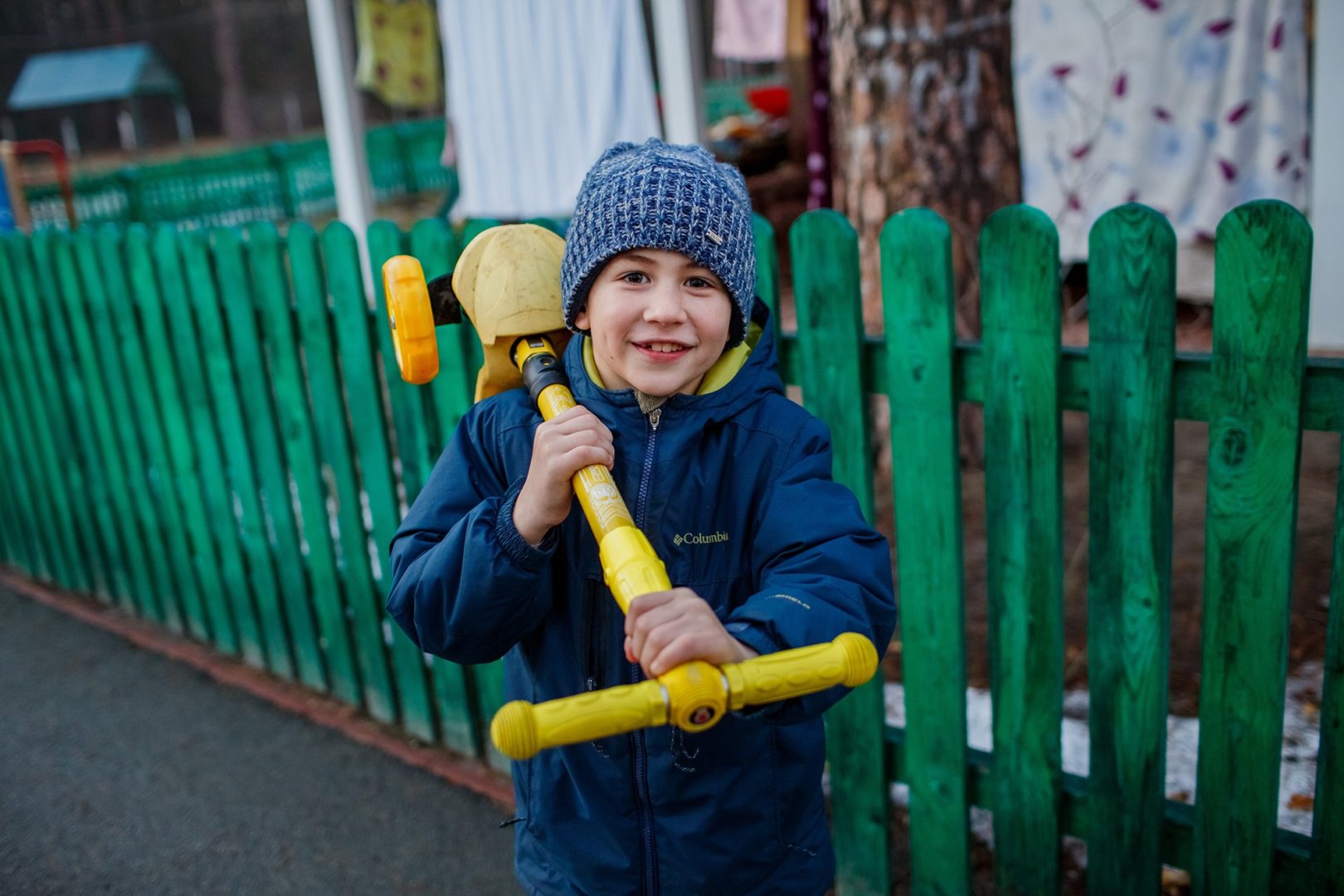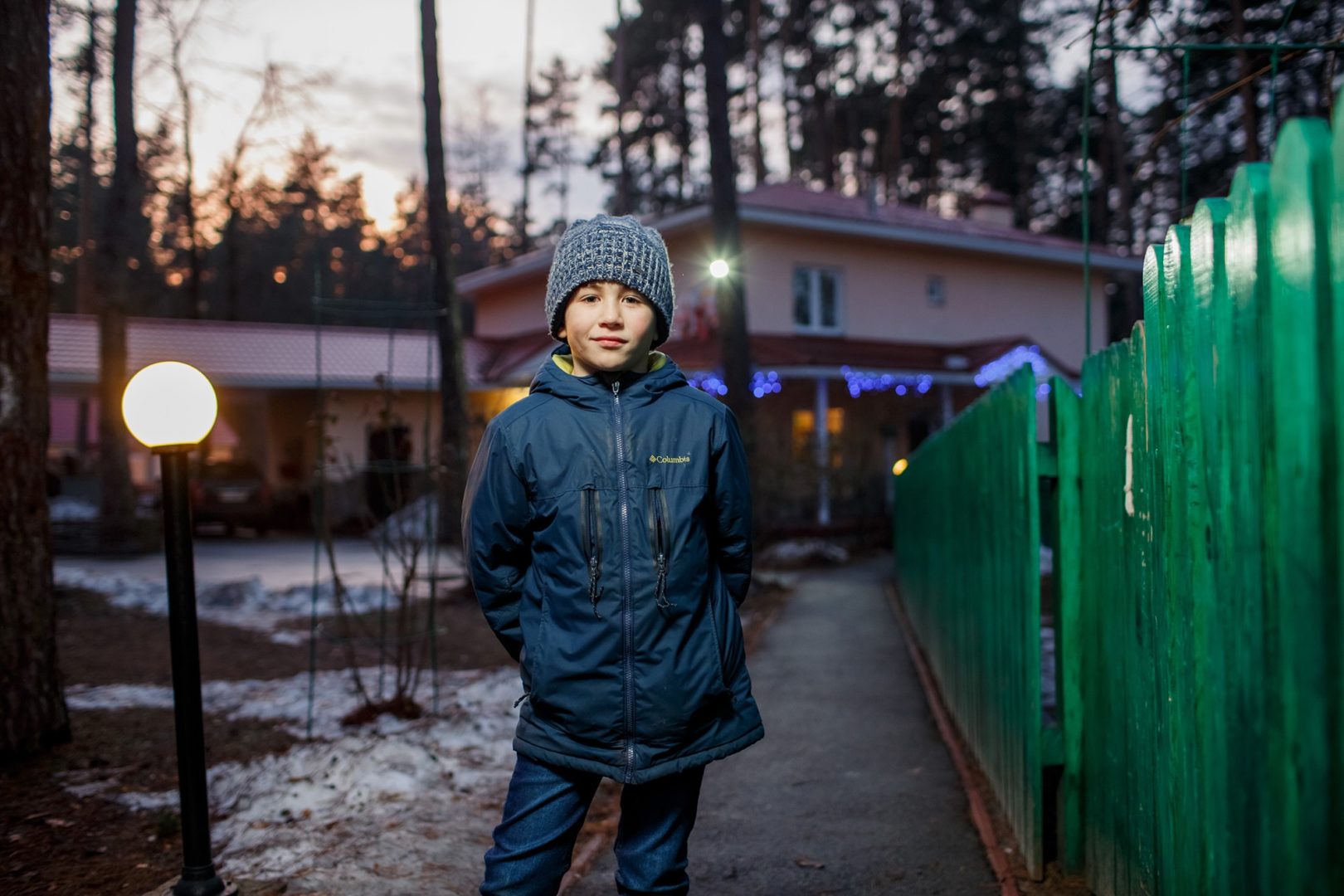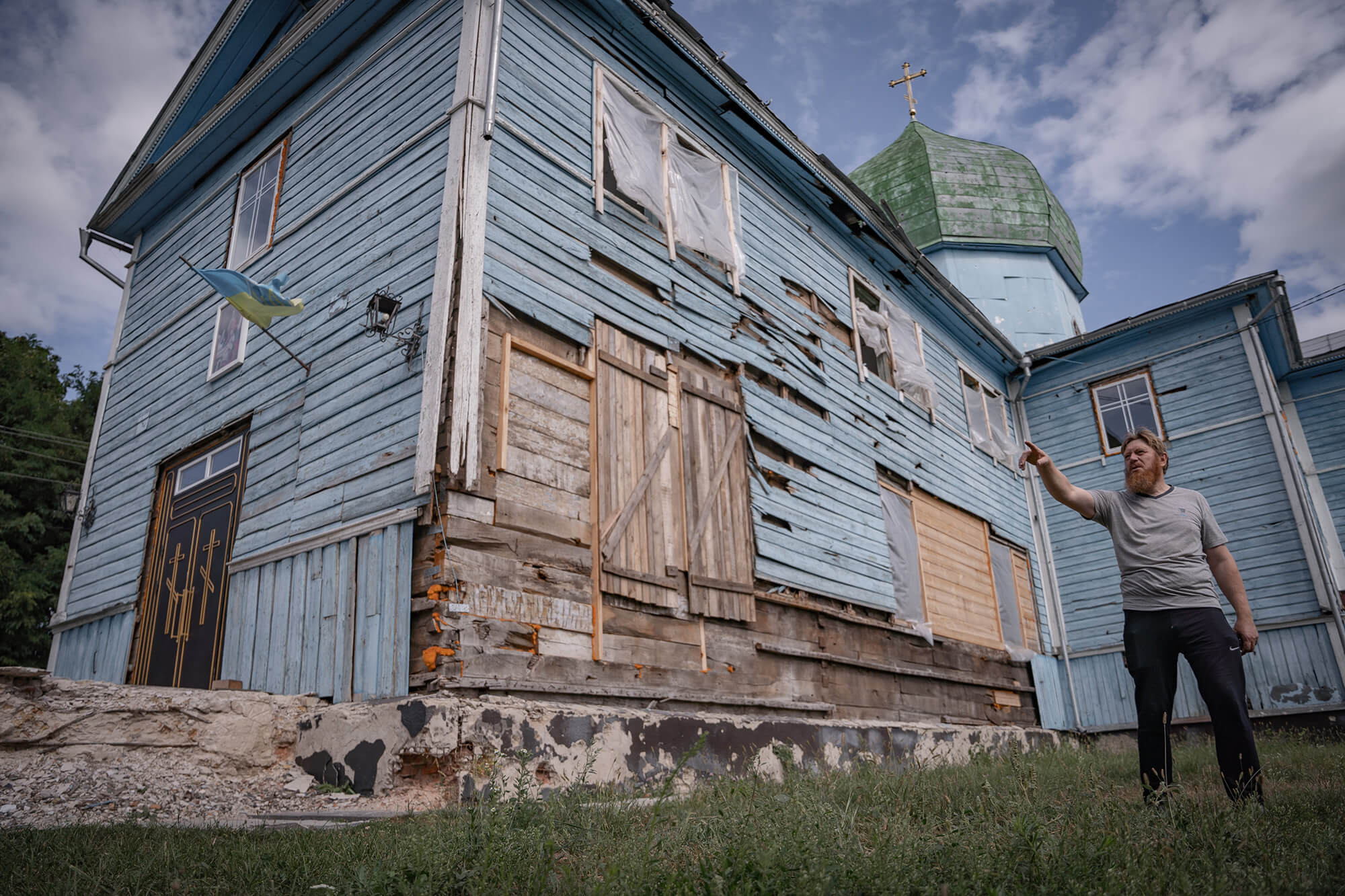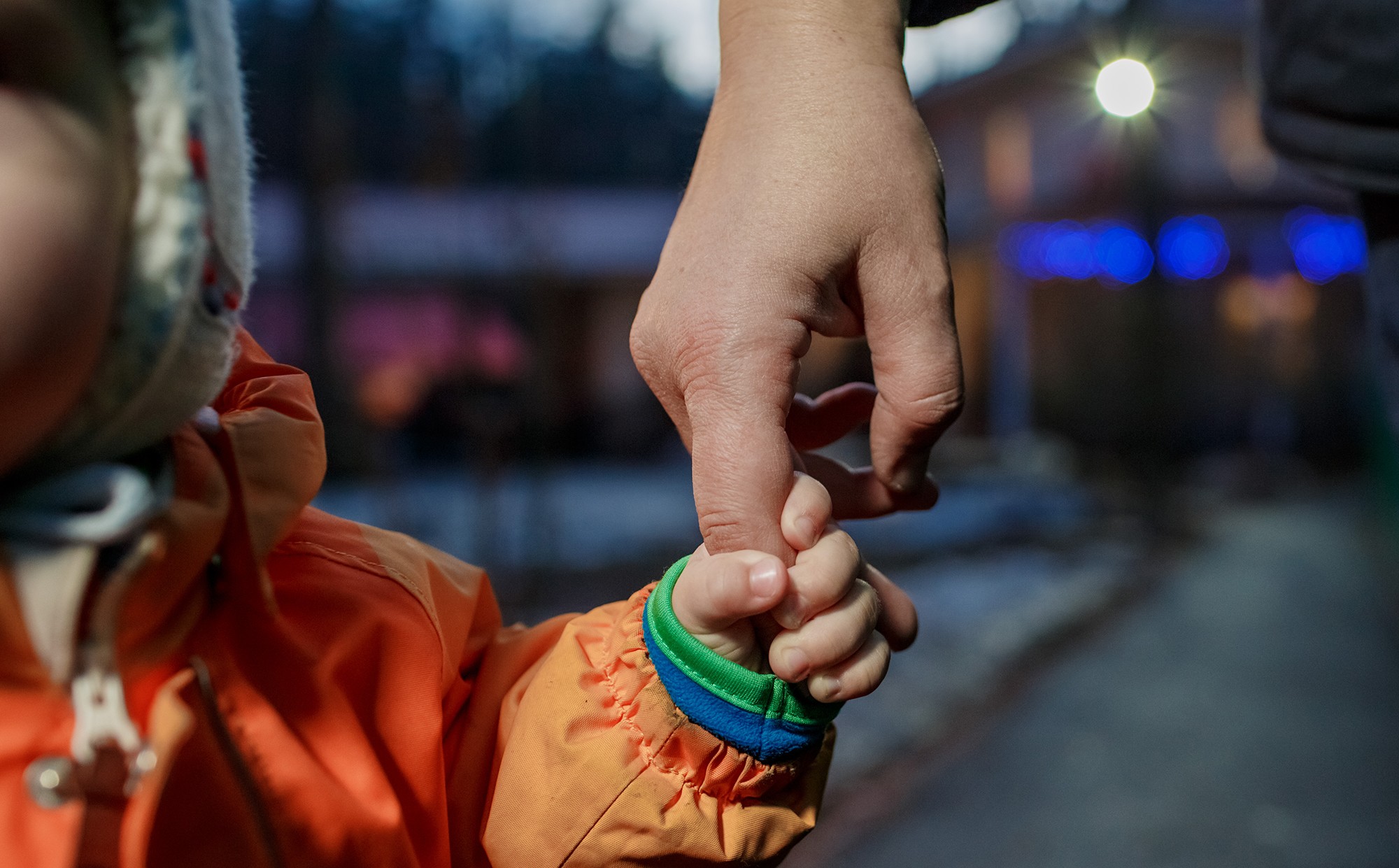
Job: Motherhood
Lyuba Vashchuk has been restless all day long. Today is the day of the court hearing. Every time she is about to pick up the phone, she hopes that they are on the other side. But every time, it is someone else.
Dressing the toddlers for a walk, she keeps pondering. The boys have been living with her for too long; they are getting attached, calling her “mum.” Only the eldest said today that he was ready for any court ruling: to go to a new family or go back home (assuming their birth mother will be on better behaviour). Unlike the younger ones, he understands that they are staying here temporarily.
But he hardly knows that, if it were not for Lyuba, he and his brothers would have spent the last six months in an orphanage.
Unreachable Galaxies
It is hard to imagine that there are 104,000 children in orphanages all over the country. They are scattered like stars in distant galaxies, here and there. Most are too far away, their light making its way to us in the form of pre-holiday donations—clothes, money, gifts.
If you wanted, though, you could mark those 104,000 children on a map, in a place with a specific name. The population of Brovary, for example, is higher by only a thousand.
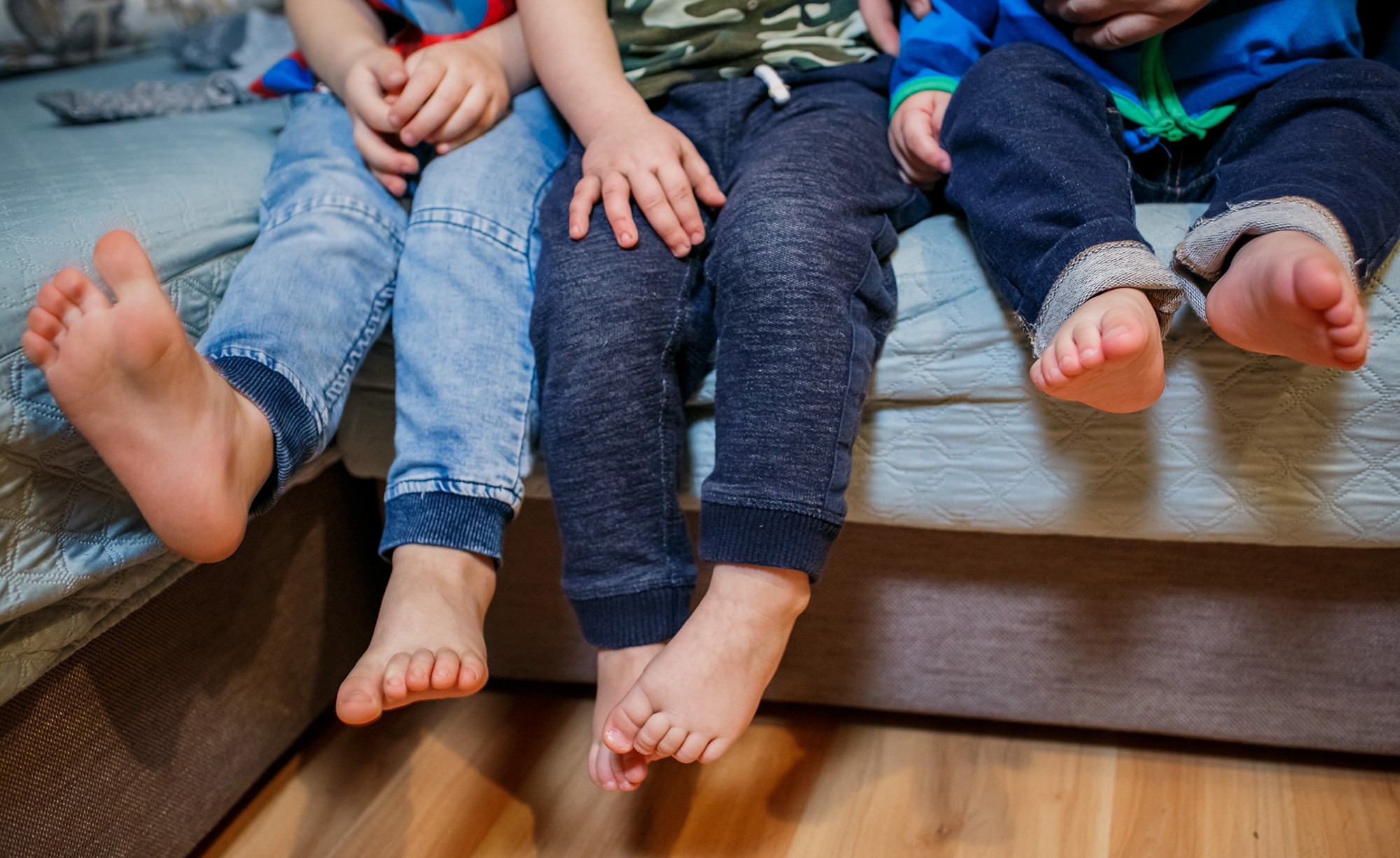
This might not be a very good example, however. There has been no orphanage in this town for several years. It is no longer required. And, in 2017, a reform was introduced in Ukraine; the government decided to reduce the number of orphanages so that children were raised in families—their own, if the families can still be saved.
Studies show that orphanages are detrimental to mental and intellectual development of children. Speaking of numbers again, 9 out of 10 children living in orphanages have at least one parent. This is not to contend that such parents are often unable to provide their children with decent care; rather, it is about helping the parents to learn to do so.
Foster care is an important tool in this context—a family that is always ready to take in children whose parents have found themselves in difficult circumstances.
Optimally, a child should stay in the foster care system for three months. However, court hearings usually take so long that children must stay with a foster family for another six months.
It is hard to imagine that there are 104,000 children in orphanages all over the country. If you wanted, though, you could mark those 104,000 children on a map, in a place with a specific name. The population of Brovary, for example, is higher by only a thousand
Legally, a foster family can only care for children from the same family while social services are working with the dysfunctional parents or searching for a new permanent family for their children.
Yet, biological parents are sometimes unwilling to work with social services, so motivating and making sure that they attend all classes is a difficult job. Darya Kasyanova, an expert in prevention of child abandonment and the National Program Development Director at SOS Children’s Villages in Ukraine, says the government often lacks staff, expertise and material resources.
When it comes to working with children, the government planned to engage 378 caregivers in 2018, but currently, only 81 foster families are caring for 256 children. The reasons may lie in both the lack of awareness and the indifference of the communities.
After all, one must receive proper training to be a foster parent. Sometimes, the candidates drop out while still in training (which lasts up to three months). In addition, there are certain requirements for the candidates. For example, someone who has no parenting experience, who would like to also have a regular job or who lives alone (the latter requirement was added later) is not allowed to become a foster parent.
2018
Over the course of six years, Lyuba took care of 33 children for an average of six months; the longest period was nine months. (There was an exception, which Lyuba will share later.)
Six years ago, Lyuba, who was 34 at the time, packed her things and moved from Kyiv to the outskirts of Brovary. In the town surrounded by the tall wall of pine trees breathing deep was easy. The area looked like a resort. Lyuba found a new home in one of 14 identically planned houses on the territory equipped by SOS Children’s Villages in Ukraine. Foster families and family-type orphanages became her neighbours.
The first 3.5-year-old foster child arrived pretty soon. In two weeks, there was another boy of the same age, and, finally, a boy named Danya, who was a year younger. How did Lyuba feel about being alone with three kids in a new place? She recalls it was like being a prisoner. Yet, that feeling faded after a while.
Once, when all three of the first foster kids—funny peanuts—were sitting on the sofa, Lyuba decided to take a photo of them. In this way, a heart-warming idea was born: she would give each of them a photo album so that the boys could take some early memories, which would be erased and forgotten in time, to their new lives.
Lyuba leaves for a minute and comes back with an album.
“He keeps it in a secret place.”
She shows a picture of a blond boy with a speaking and stubborn look, raising a fluffy dandelion over his head. Tall grass ripples in the background.
“Danya!” Lyuba’s current foster kids exclaim.
2008
In fact, it all started much earlier. Let us flip the album of Lyuba’s life 11 years back, when a young woman with a degree in education was praying and asking God to help her find her way in this life.
Some time later, she bought a ticket to Kherson and was employed as an arts teacher for children at a local orphanage. It turned out that the children did not need her paper-cutting and embroidery; they needed someone to cuddle and snuggle up to.
Lyuba was flustered and confused with their questions: “Are you my new mummy?”, “Can I stay with you?” One of the girls was excited to show her some ragged dress; it was her favourite, and she wanted to show it off.
This is where Lyuba hesitates. It is hard for her to speak; something is wrong with her voice. She says she is just tired, that she will be fine in a minute. The toddlers often get sick, so waking up four times a night is a common thing. In a minute, Lyuba returns to her story, telling how she returned home that day, went to bed and cried for a long time. For the first time, she thought about adopting, but she abandoned those thoughts right away. She was single and had no personal accommodation or money.
She kept going to the orphanage once a month for a year until she got scared of herself; the childhoods she saw at the orphanage turned from unacceptable into ordinary. She got used to it.
Having realised that, she moved on to become a social worker and help children stay in families somehow. She found a job at the Social Services Centre.
2009
At the maternity ward in Brovary, some babies cannot make a portrait of either mum or dad from the fragments of voices and faces around them.
These are the children abandoned by their parents, who are looked after by volunteer nurses (including Lyuba). They are supervised by Natalia Dudko. An obvious thing was stated at one of the seminars: the hospital cannot replace the child’s family, and they needed to try and change the format of care.
Partnership for Every Child, an international charity, invited Natalia and her husband to become the first family in Ukraine to have a temporary placement (they would later change the name to foster care). At that time, the work of social services and NGOs was near perfect in Brovary, which is why the Partnership chose it to develop the model of assistance to crisis families. (In nine years, they have managed to bring back about 40% of 300 children to their families. However, children are sometimes taken away repeatedly).
Natalia Dudko agreed to take children into her family, and Lyuba became her assistant.
A foster care regulation was introduced in the town.
Some of the children from the Brovary orphanage were adopted while others went to foster homes and family-type care homes, like the one Lyuba is in charge of, at the SOS Children’s Village in Ukraine.
The orphanage became obsolete, and was closed.
I do not get attached; I create boundaries. A baby cannot sleep with me in bed. Every time they come to me at night, I get them back to their beds. I can let them sleep in my room; I can hold their hands. But I will not give them hope that this will always be the case
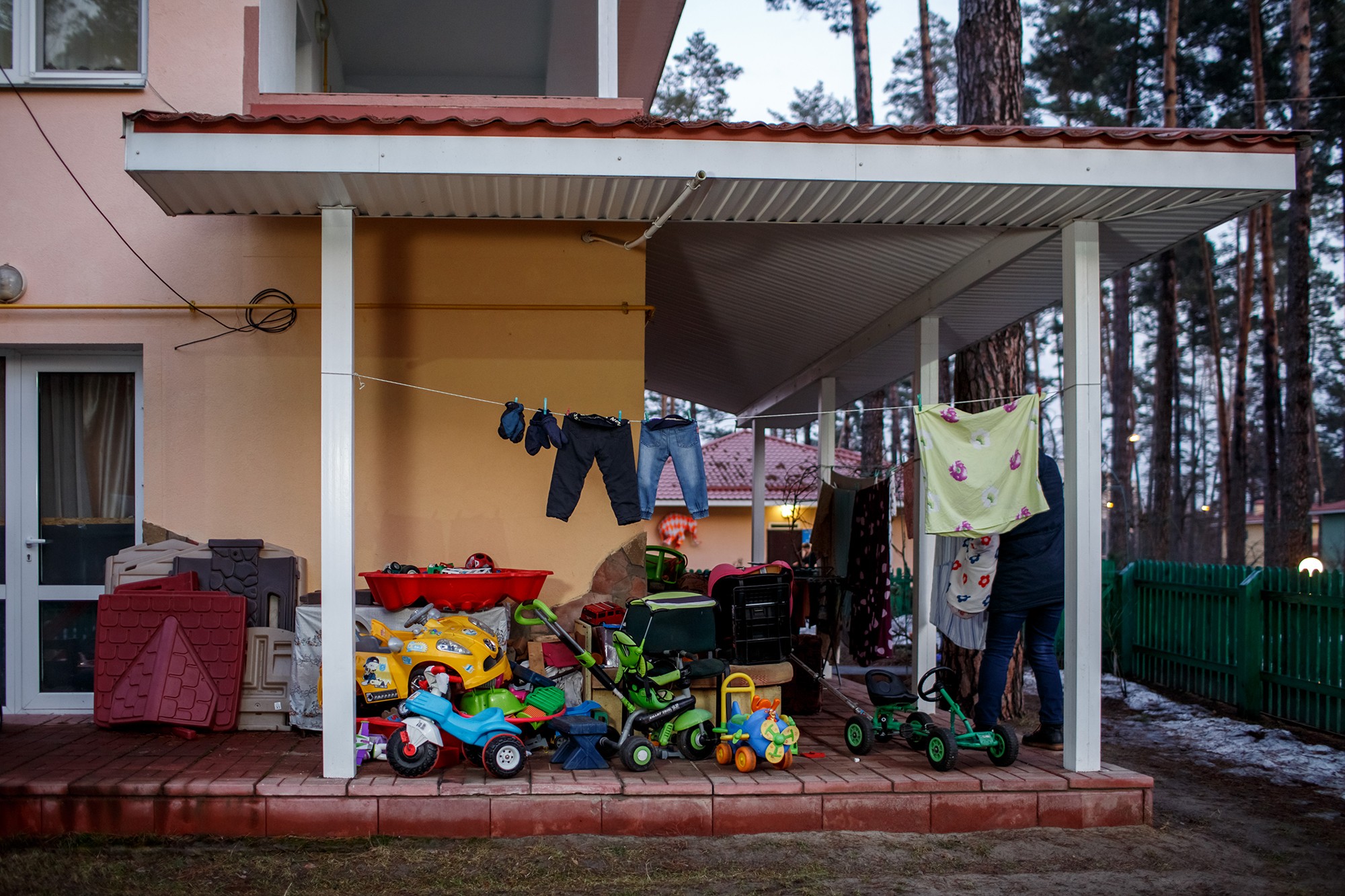
Like Constantly Shovelling Snow
Perhaps Lyuba has better conditions at the SOS Children’s Village in Ukraine than other foster carers. Next to her house, there is an administrative building, which houses offices for a social worker, a child and youth counsellor, correctional teachers, a psychologist, and a speech therapist. Children can attend all necessary classes right in the Village. The organisation also provides Lyuba with a house, pays for services and a helper, and provides biological parents with support or rehabilitation if needed.
For her work, Lyuba is paid a salary and some money for the children from the town budget.
(The government pays a monthly allowance of UAH 2,984 ($130 — R.) for the maintenance of a child up to six years of age and UAH 3,720 ($160 — R.) for a child above six. This year, a patronage carer’s salary is almost nine thousand hryvnia ($390 — R.), that is 5 minimum wages).**
When her assistant has a day off (like today), Lyuba stays with the children alone. Now, she has five of them. During the day, Lyuba manages to sit down just a few times—to dress and feed the children. It takes her more than an hour to finish her own soup. Naturally, it’s cold when she finally finishes her meal.
“In other families, babies grow up, while I have to give them away and take new ones all the time. Being on such maternity leave is like constantly shovelling snow. There is no personal time. Of course, I’ve thought about quitting because of all that waking up at night. But if I have already agreed, I have to choose not only the children that are convenient for me. I understand that foster care is not for life. As soon as I see that I can give too little to the kids, I will stop.”
Every time, we come back to the topic of attachment. How to avoid it, how to shuffle it off. Lyuba lays down her explanation carefully and deliberately.
But starting from the opposite end: over all this time, she has had two children she could not accept, whom she almost could not bear to handle.
“It was so hard.” Lyuba breaks the word into syllables, and her “hard” becomes even harder. “I did my best but without this love. And I felt guilty. The child kept saying, ‘Auntie Lyuba, you do not love me. . .’”
“I clearly realise that I take the children for a limited time. My activities are professional; I get paid for it. My job is to identify needs and rehabilitate. Often, I get children with rotten teeth, chronic diseases. I do not get attached; I create boundaries. A baby cannot sleep with me in bed. Every time they come to me at night, I get them back to their beds. I can let them sleep in my room; I can hold their hands. But I will not give them hope that this will always be the case.”
Yet, one time, it did not work.
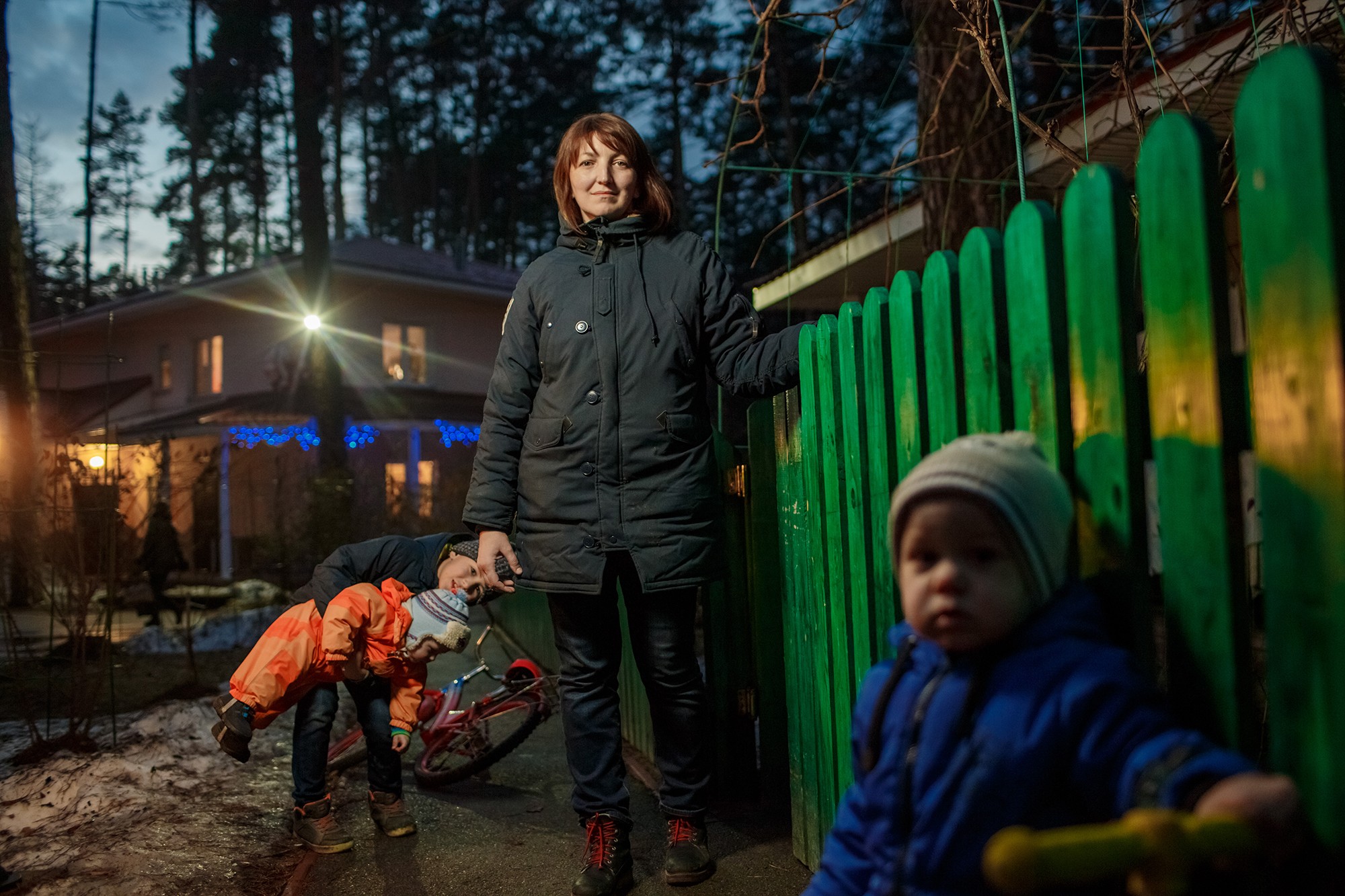
Vashchuk-Ninjago
Danya likes stories he cannot remember and those missing from his album (the one kept in a secret place)—for example, the story of how he cried at night, and Lyuba took him with his pillow and let him sleep by her side.
Of the 33 children Lyuba has cared for, this 2.5-year-old boy was the most difficult. He would fight and bite; he did not let anyone touch him. Sometimes, Lyuba had no idea what to do with him.
“The next night, you were crying again,” Lyuba tells him now. “You were asking to come sleep with me again. I held you in my arms, and you asked to wait. Went away and brought your pillow. See how smart you were!”
Danya likes this story.
At first, Lyuba took custody of him. At the age of three, the boy started talking. He called Lyuba “my Yuba” and her parents, “randma” and “randpa.” It seemed like he chose his family.

“Somehow, that kid found a place in my heart. . . And this love gives me patience, because Danya is a special boy. There was less aggression each year. Now, he is eight. I love him dearly, and he is such a. . . very good boy,” for the first time in our conversation, Lyuba actually laughs.
“When he was five, I said, ‘Danya, my last name is Vashchuk, and your last name is different.’ (I was already telling him back then, ‘You are my son forever, and I love you.’) ‘Would you like your last name to also be Vashchuk?’ And he said, ‘May I have Ninjago as my last name? Really? Yippee!’”
“And in a few days: ‘Mum, I thought about it, and I do not want to be Ninjago. We are one family with you. I will be Vashchuk.’”
Help and Give Back
“We have a beautiful baby!” Danya tells the neighbours as they pass by their house.
“And what is its name?”
“A Beautiful Baby!”
He says it every time Lyuba has a new foster child.
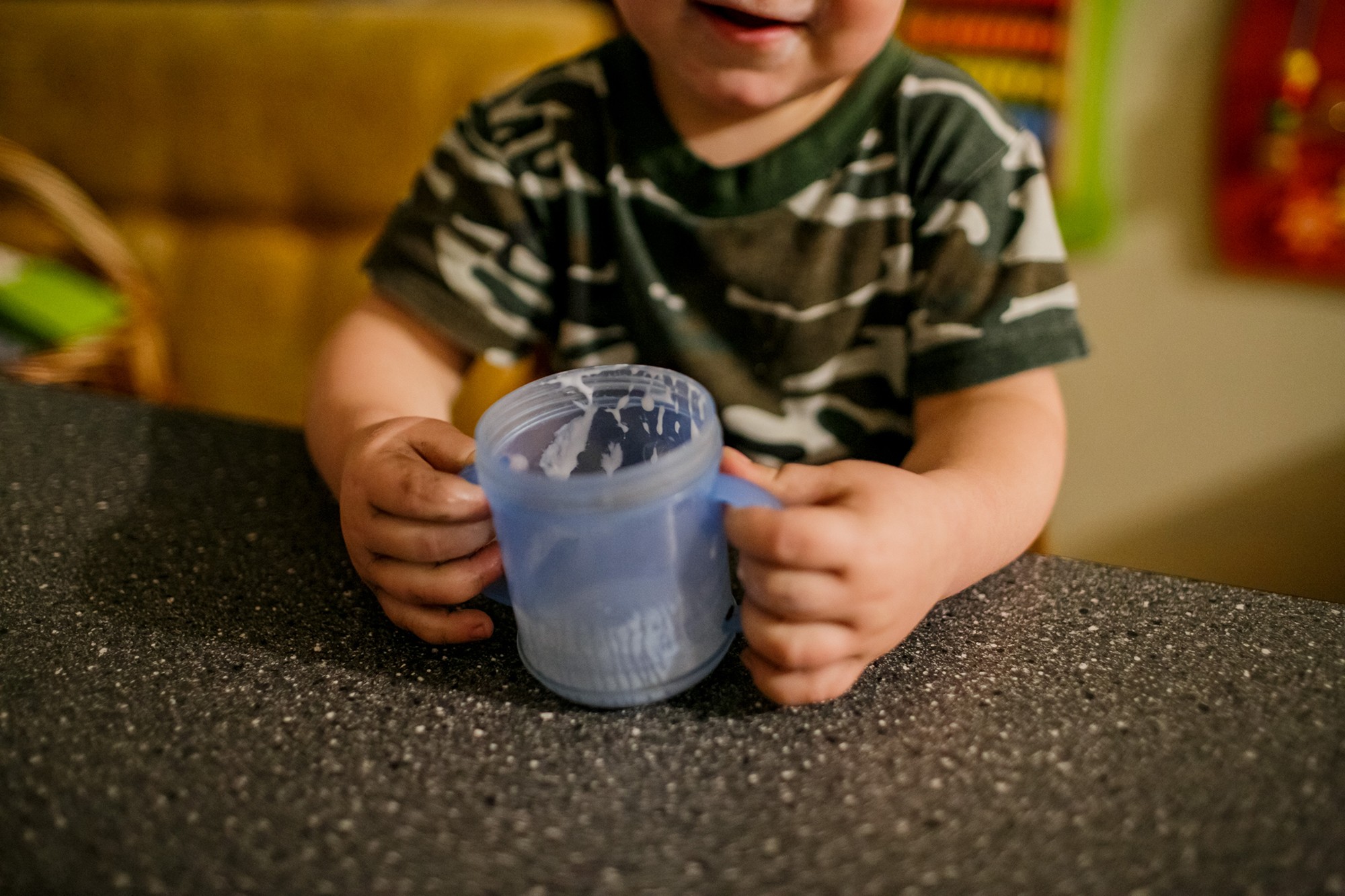
But this does not mean that it is easy for Danya to make friends with all of them or share his space and toys. For this reason, he has his own room, which other children are not allowed to enter without his permission.
Now, Lyuba and Danya compare everything beautiful with baby Andryusha. He is a little over a year old, and he has been in Lyuba’s care since the first weeks of his life. She has also taken him as a foster—that is, she can either adopt him or give him for adoption.
“I never thought about a second child,” she confesses. “My whole heart was always given to Danya. So, I decided to let this matter go. The only thing I care about now is for Andryusha to be healthy and well-developed.”
Six years of work as a foster carer have changed her views. She no longer jumps to conclusions—whether or not she can give a child back to a particular mother. (The children never ask to go back home in the early days when they are taken to Lyuba.)
“It would be difficult for some people to do my job, since children are constantly changing. But it is easier for me. I help them; I give them back.”
Six months ago, Lyuba wanted a white fluffy dandelion on the wall in her living room. It is similar to the one Danya is holding in one of his photos.
“It makes me so calm. . . ,” Lyuba says.
We close the album. There will be no calls from the court today.
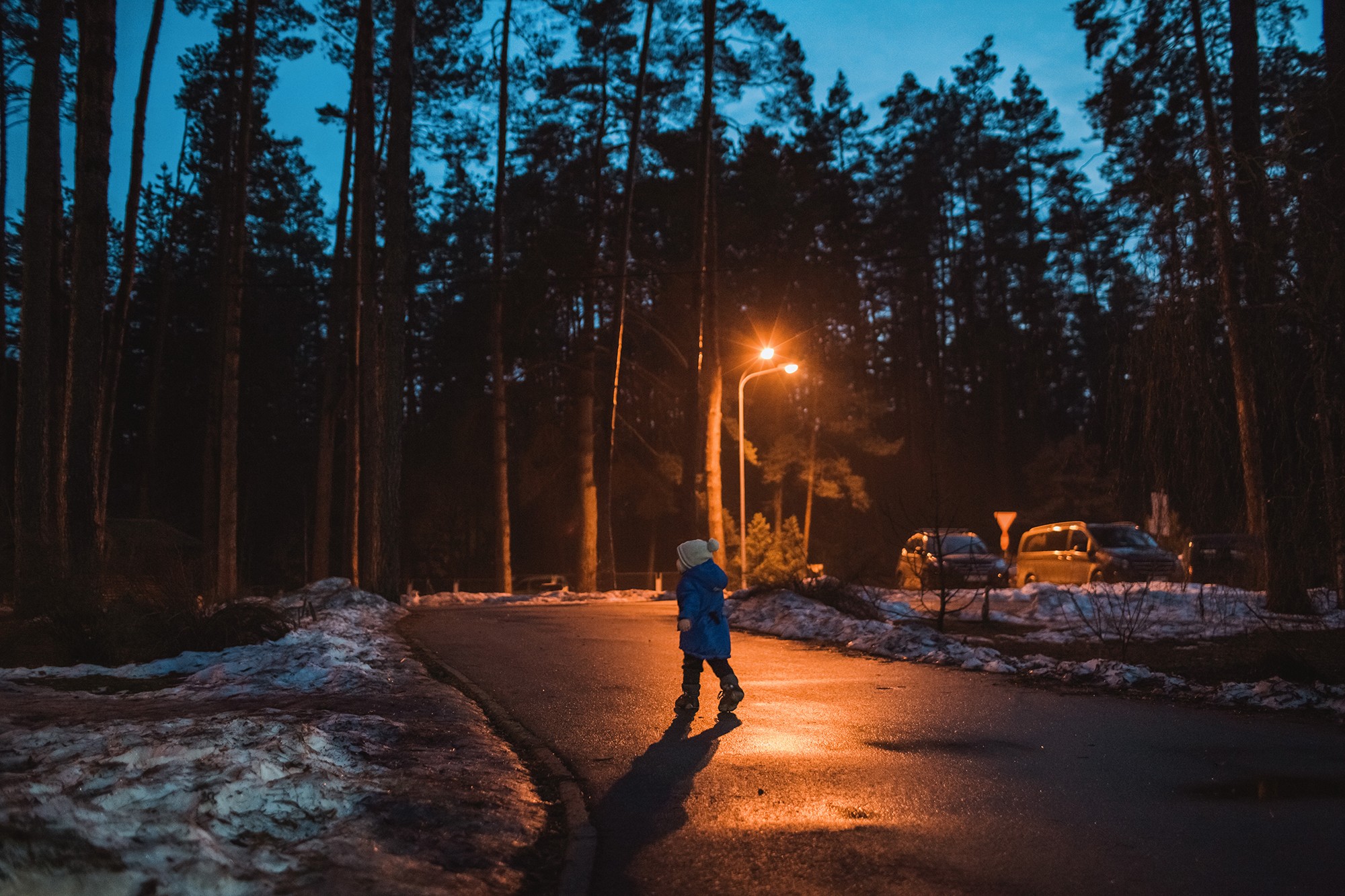
* Names of the children and the main character have been changed upon request.
** Data as of 2018.
[This publication was created with support of the Royal Norwegian Embassy in Ukraine. The views and opinions expressed in this publication are those of the authors and do not necessarily reflect the official position of the Norwegian government.]
Have read to the end! What's next?
Next is a small request.
Building media in Ukraine is not an easy task. It requires special experience, knowledge and special resources. Literary reportage is also one of the most expensive genres of journalism. That's why we need your support.
We have no investors or "friendly politicians" - we’ve always been independent. The only dependence we would like to have is dependence on educated and caring readers. We invite you to support us on Patreon, so we could create more valuable things with your help.
Reports119
More